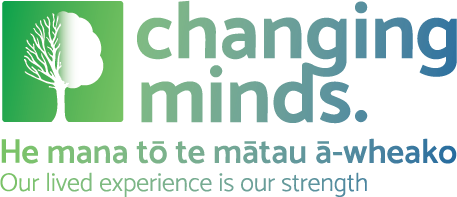Online Harm and Our Wellbeing
We wanted to take a moment, in light of recent stories in the media and posts some we’ve seen online recently to share some thoughts on supporting our own wellbeing, and the wellbeing of others online. It is our collective responsibility to ensure the ways we communicate are safe for ourselves and those around us. Disagreements happen – they can be respectfully managed without resorting to abuse, harassment, bullying, threatening behaviour or discrimination.
Openness to honest kōrero about supporting our wellbeing has shifted in recent years, but as we've seen in the last few days, there are plenty of people who try to belittle or mock this bravery based in their own prejudices and discrimination. We can only empathise to what this would be like in the public eye.
Let’s be mindful of language.
He mana tō te kōrero. Our words have great power. It doesn’t matter if these are spoken aloud or written down, what we say affects others and can contribute to discrimination and prejudice. We also know that positive contact with capable and smart leaders in the community who normalise experiences of mental distress is one of the best ways as a community we can challenge negative beliefs about mental health and wellbeing.
It's ok to share opinions and disagree with others, but it is never ok to abuse, harass, bully, threaten or discriminate against others. We can all aim to be kind and courteous online.
We want to support everyone in learning to use language that challenges prejudice, discrimination and self-stigma and have a free guide with lots of evidence backed information about what works.
Listen to Rākau Roroa Tall Trees talk about Language Considerations.
If you or someone you know is experiencing online abuse:
Take a moment to step away and look out for your wellbeing. Reach out to someone you trust and have a kōrero about what you can do to support your wellbeing. If you need to talk to someone right away, you can call or text 1737 (they also have peer support available!). We have other resources we support available on our website here.
Taking it further:
Netsafe is responsible for helping resolve breaches of the Harmful Digital Communications Act, which includes online communications that are (among other things!) threatening, menacing, intimidating, harassing, or sent with the purpose of causing harm to a person. You can find out more about how they can support you, and more information about harmful communications here.
They also have a helpful poster about the importance of reporting online abuse, threats and discrimination, but to summarise:
Report to the police. If someone is in danger, call 111.
Report to Netsafe, where you can report harmful content.
Report to the Human Rights Commission if you have faced unlawful discrimination.
Report potentially or clearly violent extremism content to the Digital Safety Team at DIA.

